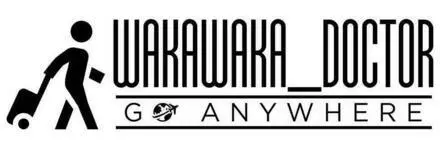I am sharing ‘Ireland’ with you
Ireland’s Migration Opportunities
Did you know that after BREXIT, Ireland becomes the only English-speaking country in the EU?
Did you know that as a student in ireland, you can work part time for up to 20 hours per week (minimum of EUR 800 per month), and 40 hours per week (minimum of EUR 1600 per month) during the holiday?
There are several ways to migrate to Ireland but the most common are through schooling and through employment (I’ll discuss the employment aspect in another post).
Studying in Ireland
The cost of an Irish degree solely depends on the location of the University. Some cities like Dublin are more expensive than others. Generally, international students (Nigerians inclusive) are estimated to spend around EUR 7,000 per year on accommodation, feeding and other expenses.
Some universities and private organisations in Ireland offer fee waivers or scholarships to international students. Some universities like University of Limerick offer international travel workshop as part of the Master’s course. Tuition in Ireland could start around EUR 9,650 average per year. Most masters programs in Ireland last for a year. Although Irish (Gaelic) is spoken in Ireland, English remains predominantly used in universities.
Masters fees and funding in Ireland
- University of Limerick – Bachelors: EUR 12,270 to 14,592 per year. Masters: EUR 8,273 to 17, 914 per year
- University College Cork – Bachelors: EUR 12, 400 to 48,750 per year. Masters: EUR 6,500 to 20,000 per year
- University College Dublin – Bachelors: EUR 12,800 to 30,685 per year. Masters: EUR 3,318 to 19,900 per year
- Technological University Dublin – Bachelors: EUR 9,650 to 12,500 Masters: EUR 11,000 to 14,000 (Sciences and health are slightly higher)
- Dublin Business School – Bachelors: EUR 9,850 Masters: EUR 12,500 to 13,500. DBS as its popularly called offers courses in Business, Computing, Media, Law, and Psychology. Moreover, the school also offers part-time programs and professional diplomas in Digital Marketing, Project Management, Psychotherapy, and Fintech.
- Athlone Institute of Technology – Bachelors: EUR 10,000 per year. Masters: EUR 10,000 per year. They offer courses in Business and Management, Accounting and Business Computing, Civil Construction and Mineral Engineering, Nursing and Healthcare, and Social Science and Design.
- Letterkenny Institute of Technology – Bachelors: EUR 10,000 per year. Masters: EUR 10,000 per year.
- Institute of Technology Sligo – Bachelors: EUR 10,500 per year. Masters: EUR 11,500 per year
- Cork Institute of Technology – Bachelors: EUR 12,000 per year. Masters: EUR 12,000 per year
Living cost
If your program is subject to a charge, proof of funds (bank statement) is expected to be provided after paying tuition. As is common in most countries in the EU, you are required to have at least EUR 560 per month to cover for housing, food and other expenses (it could be more depending on the location). This implies that for a year, you will need to show proof of about EUR 7,000. The truth is that in some counties in ireland, you might require more than EUR 560 per month to survive. The good news is that as a student, you are eligible to work 20 hours per week during the session and 40 hours per week during the holiday. This means you can conveniently earn about EUR 800- 1600 per month depending on the time of the year.
Ireland besides being rich in culture houses a lot of Africans, especially Nigerians. Therefore, be sure not to miss out on Nigeria foods during your stay here (many thanks to the African food shops and restaurants).
Applying for a Master’s program in Ireland
The academic year in Ireland often commences every September but application for Masters programs usually starts from November to February of March next year (some universities close application in May/June but that’s a risk because visa application usually takes a while). Although there are universities that admit students in January. On a general note, below are some entry requirements for Masters applicants:
- An undergraduate degree (three years minimum)
- Personal statement or Letter of intent
- In some cases, a virtual interview by the university.
- Proof of academic performance (transcript)
- Language skill (IELTS, TOEFL or PTE)
- Other specific requirement of the university or faculty.
Quite often, you are not expected to pay an application fee although some universities charge.
Every university have career services that are conversant with the Irish labour market in the and will be willing to advise you on choice of course and its speed of employability. Although, it is rather obvious that health related courses, finance and IT own quite a large chunk of the market now.
Student visa to Ireland
Owing to the fact that Ireland is part of the EU, visa requirements apply to Non EEA/EU wishing to study in Ireland. You can only apply for the student resident permit once you have your acceptance letter from any Irish university. It usually takes a while, so do not delay. You are required to apply by visiting the local Irish embassy usually through their third party agent VFS in person. In addition to the documents mentioned above, you are required to present:
• A valid passport
• A formal offer letter
• Proof of funds (about 7,000 euros)
• Health insurance
Post Study Option:
Upon successful completion of the program, you are eligible to receive a residence permit for job application. This permit can only be granted as a permit extension to a student residence permit. This is issued for a maximum of 24 months (2 years) after graduation to enable you job hunt. Once you find a full time job, you are eligible to apply for a work permit (Stamp 4) that grants you access to remain in Ireland.
Best of luck with your application, if you’re the one going for it. Be sure to share this with anyone you know who is looking to study abroad.








Thank you for sharing this information.
From the listed universities above, I didn’t see any one mentioned as offering scholarship. How can one get access to 100% scholarship in any university that offers Finance course?
Thank you.
Good afternoon, I’ll like to know how someone who has studied Nutrition and Dietetics in Nigeria can relocate and if there are any chances
Thank you for the information. Please are Nigerians exempted from test of English in Ireland?
Thanks for all you do sir,pls I didn’t see Sweden and Germany there ,and sir can u help us include crime rate and possible rate of getting a job as per vacancy.Thanks&God bless
I’m looking to emigrate based on employment… I can’t find the post yet…